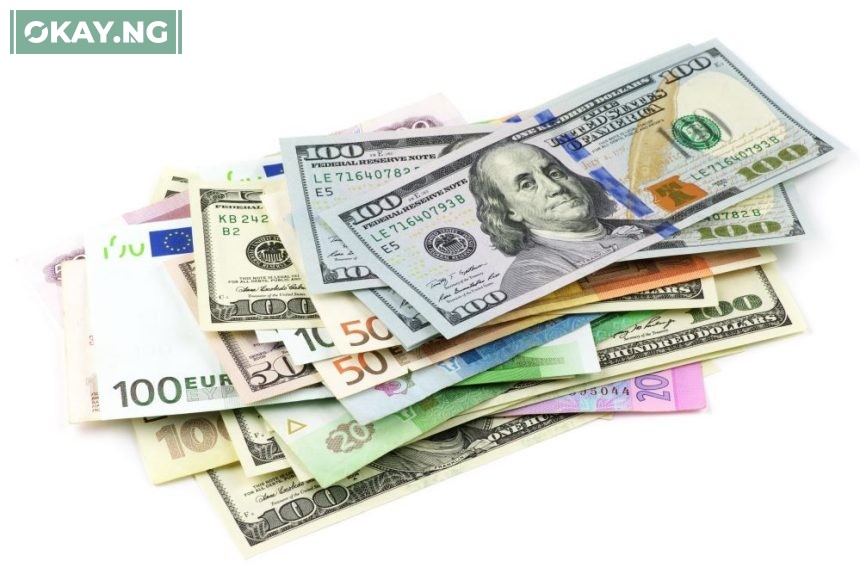A domiciliary account is a type of bank account that allows you to receive and send funds in foreign currencies, such as US dollars, British pounds, or euros. It is useful for people who travel abroad, have relatives or business partners overseas, or want to save or invest in foreign currencies.
In this article, we will explain how a domiciliary account works, how to open one in Nigeria, and what are the benefits and challenges of having one.
What is a Domiciliary Account and How Does it Work?
A domiciliary account is different from a regular naira account, which only deals with the local currency. A domiciliary account can hold multiple foreign currencies and enable you to perform transactions with them.
For example, if you have a domiciliary account, you can:
- Receive payments from abroad, such as remittances, salaries, dividends, or grants.
- Send money to other countries, such as paying for goods, services, tuition, or travel expenses.
- Transfer money between your foreign currency accounts, such as exchanging dollars for pounds or euros.
- Withdraw cash in foreign currency from your bank or ATM, subject to availability and charges.
- Deposit cash or cheques in foreign currency into your account, subject to verification and charges.
To operate a domiciliary account, you need to have a valid means of identification, such as a passport, driver’s license, or national ID card. You also need to provide proof of address, such as a utility bill, bank statement, or tenancy agreement. Some banks may also require you to have a minimum opening balance or a reference from an existing customer.
How to Open a Domiciliary Account in Nigeria?
Many banks in Nigeria offer domiciliary accounts, such as First Bank, GTBank, UBA, Zenith Bank, Access Bank, Fidelity Bank, and more. Each bank has its own requirements, fees, and features, so you should compare them before choosing one.
Here are the general steps to open a domiciliary account in Nigeria:
- Visit the nearest branch of the bank of your choice and request for a domiciliary account opening form.
- Fill out the form with your personal and contact details, and indicate the currency or currencies you want to open the account with.
- Attach the required documents, such as your identification, proof of address, passport photographs, and reference letter (if applicable).
- Submit the form and the documents to the bank officer for verification and processing.
- Pay the minimum opening balance, if any, and collect your account number and cheque book (if applicable).
- Activate your account by making your first deposit or withdrawal, either in cash or cheque.
- Register for online banking and mobile banking services, if available, to access and manage your account anytime, anywhere.
What are the Benefits of Having a Domiciliary Account in Nigeria?
Having a domiciliary account in Nigeria can offer you several benefits, such as:
- Convenience: You can easily receive and send money in foreign currencies, without having to convert them to naira or use third-party services.
- Security: You can protect your money from currency fluctuations, inflation, or devaluation, by keeping it in a stable and strong currency.
- Savings: You can save money for future needs, such as education, travel, or investment, in a foreign currency that may appreciate over time.
- Income: You can earn interest on your deposits, depending on the bank and the currency you choose.
- Flexibility: You can choose from a range of currencies, such as dollars, pounds, euros, yuan, or francs, and switch between them as you wish.
What are the Challenges of Having a Domiciliary Account in Nigeria?
Having a domiciliary account in Nigeria can also pose some challenges, such as:
- Cost: You may have to pay fees for opening, maintaining, and operating your account, such as account maintenance fee, commission on turnover, withdrawal fee, deposit fee, cheque book fee, or ATM card fee. These fees may vary depending on the bank and the currency you choose.
- Availability: You may not be able to access your money in foreign currency at all times, as some banks or ATMs may have limited stock or functionality. You may also face delays or difficulties in depositing or withdrawing cash or cheques in foreign currency, especially if they are not in good condition or from a different bank.
- Regulation: You may have to comply with the rules and regulations of the Central Bank of Nigeria (CBN) and the Financial Intelligence Unit (FIU) regarding foreign exchange transactions, such as providing the source and purpose of your funds, reporting any suspicious or unusual activity, or adhering to the limits and restrictions on transfers and withdrawals.
Frequently Asked Questions
Here are some of the most common questions and answers about domiciliary accounts in Nigeria:
Can I open a domiciliary account online?
- Some banks may allow you to open a domiciliary account online, but you will still need to visit a branch to submit your documents and activate your account.
Can I open a domiciliary account without a reference?
- Some banks may not require a reference to open a domiciliary account, but others may do so, especially if you want to open a current domiciliary account or a high-interest domiciliary account.
Can I withdraw naira from my domiciliary account?
- No, you can only withdraw foreign currency from your domiciliary account. If you want to withdraw naira, you will have to convert your foreign currency to naira at the bank or the parallel market.
Can I deposit naira into my domiciliary account?
- No, you can only deposit foreign currency into your domiciliary account. If you want to deposit naira, you will have to convert it to foreign currency at the bank or the parallel market.
Can I transfer money from my naira account to my domiciliary account?
- No, you can only transfer money from your domiciliary account to another domiciliary account, either within the same bank or a different bank. If you want to transfer money from your naira account to your domiciliary account, you will have to convert it to foreign currency at the bank or the parallel market.
Can I transfer money from my domiciliary account to my naira account?
- Yes, you can transfer money from your domiciliary account to your naira account, either within the same bank or a different bank. The bank will convert your foreign currency to naira at the prevailing exchange rate and credit your naira account.
What is the minimum balance for a domiciliary account in Nigeria?
- The minimum balance for a domiciliary account in Nigeria may vary depending on the bank and the currency you choose. Some banks may not have a minimum balance requirement, while others may have a minimum balance of $100, €100, or £50.
What is the interest rate for a domiciliary account in Nigeria?
- The interest rate for a domiciliary account in Nigeria may vary depending on the bank and the currency you choose. Some banks may not offer any interest on your deposits, while others may offer interest rates ranging from 0.1% to 4% per annum.
How can I check my domiciliary account balance in Nigeria?
- You can check your domiciliary account balance in Nigeria by using the online banking or mobile banking services of your bank, if available. You can also visit a branch or ATM of your bank and request for a statement of account or a balance enquiry.
How can I fund my domiciliary account in Nigeria?
- You can fund your domiciliary account in Nigeria by depositing cash or cheques in foreign currency into your account, subject to verification and charges. You can also receive funds from abroad, such as remittances, salaries, dividends, or grants, into your account, subject to regulation and charges. You can also transfer funds from another domiciliary account, either within the same bank or a different bank, into your account, subject to limits and charges.












